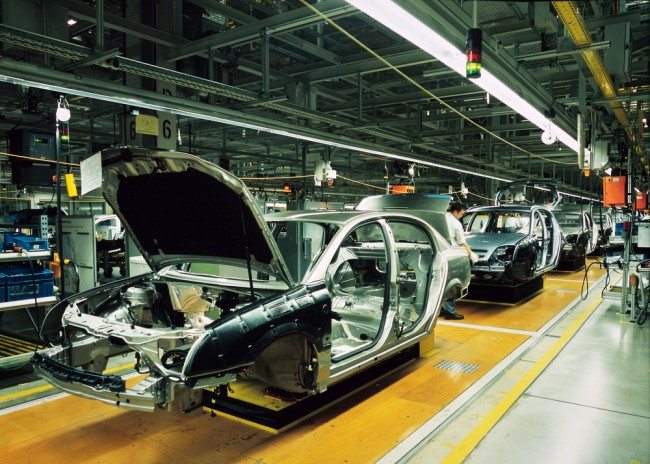The British car industry has warned of a sales downturn this year as the economic uncertainty that followed the Brexit vote kicks in.
A fifth consecutive year of growth saw nearly 2.7m new car registrations in the UK last year, a rise of 2.2 per cent on 2015. But the Society of Motor Manufacturers and Traders said it expected growth to reverse, with a sales decline of 5-6 per cent, as the cost of new cars rises due to sterling’s fall. An end to cheap financing deals would also hit sales, it said.
But Mike Hawes, the SMMT’s chief executive, said the domestic market remained comparatively strong. “This is historically an incredibly high level. We’re not talking about a collapse,” he said, adding that the market had been more resilient than expected after the EU referendum. But, he said: “Clearly, we have not seen the full effects [of Brexit] yet.”
Interest rate rises, which could be triggered by rising inflation, would threaten a market where motorists regularly switch to new cars through loan and trade-in deals. With 80% of sales coming through such deals, Hawes said, vehicles had been affordable as long as interest rates were low.
Hawes said the boom had also been driven by the raft of new models available and rapid changes in technology. “Every niche imaginable is being filled by not just one brand but a number of them,” he said. “And people want connectivity in their cars.”
Minis, luxury vehicles and SUVs have seen the biggest growth in the new car market, with traditional family saloons becoming less popular, he said.
The number of electric vehicles sold has continued to grow quickly, but from a small base. Just under 89,000, or 3.3 per cent, of all cars sold in 2016 were hybrid, electric or used an alternative fuel.
Despite the diesel emissions scandal and concerns about air quality, diesel still represented almost 48 per cent of all cars sold. While sales figures for individual manufacturers are not released until the end of the week, the VW Group, which admitted in late 2015 to having designed vehicles to cheat emissions tests, had a “very good year” for sales in 2016, said Hawes.
British car manufacturing figures for 2016 will be published this month, but Hawes indicated that any hopes that the Brexit vote would be accompanied by a patriotic desire to buy British did not appear to be supported by the data.
Rather, Hawes said, British manufacturers may have been harmed by a European consumer boycott – due to the Brexit vote – cited by the Jaguar Land Rover boss, Ralf Speth, in the autumn.
The SMMT said the eventual Brexit settlement with Europe would be critical, with tariffs likely to add up to £1,500 to the price of an imported car.
Hawes said: “The strength of the market does depend on maintaining good economic and trading conditions so cost of vehicles can remain competitive. We don’t want to see tariffs.”


